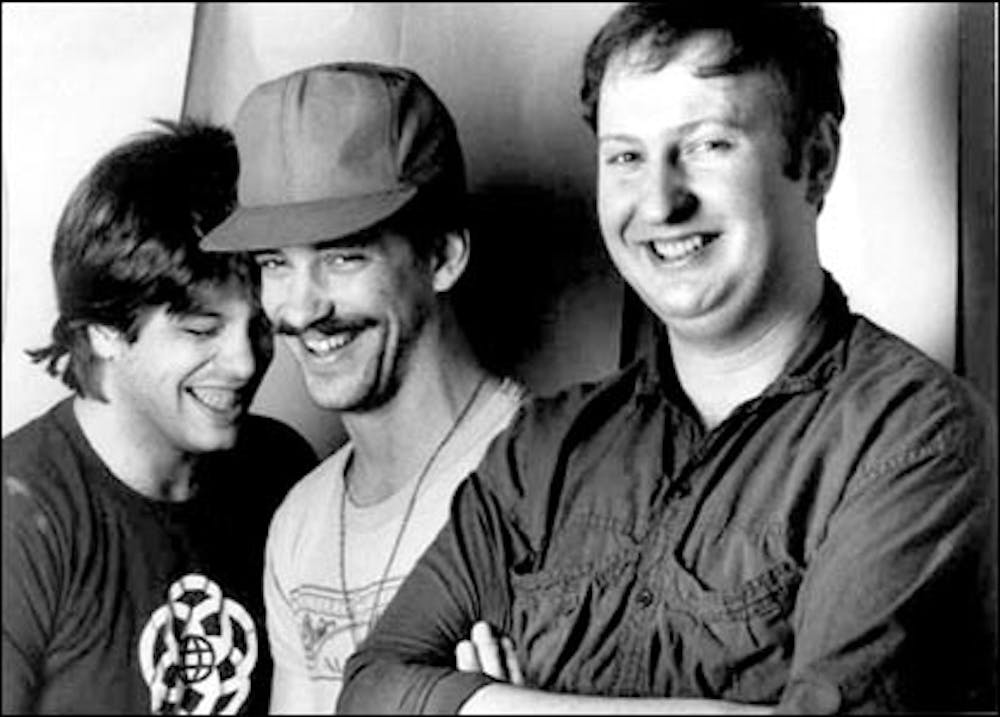Critics have called 1991 “the year that punk broke.” Nirvana’s Nevermind rocketed to the top of the charts, exposing America to a new world of underground and alternative rock, allowing bands like Sonic Youth, Dinosaur Jr., and more to find a commercial audience. But Nirvana’s blend of punk energy and pop hooks didn’t emerge out of nowhere.
For the better part of two decades, bands across the country had been tweaking and refining the punk rock formula established by The Ramones and the Sex Pistols. And after a while, three chords played through wailing distortion began to get boring, so musicians pushed beyond it, experimenting with different tempos, different recording techniques, even releasing concept albums.
At the forefront of all this experimentation was SST Records, owned by Gregg Ginn of Black Flag. In the 1980s alt-rock scene, SST was king, and it’s difficult to say that one album stands head and shoulders above the rest. They put out countless classics like The Minutemen’s Double Nickels on the Dime, Dinosaur Jr.’s You’re Living All Over Me, and Sonic Youth’s Evol. But I think one album sums up the changing tides of punk rock at the time more than any other: Hüsker Dü’s landmark 1985 release New Day Rising.
Minneapolis’s Hüsker Dü began their career with 1982’s Land Speed Record, a loud, fast, and abrasive live album that stands as a monument to the energy and anarchy of the 1980s hardcore punk scene. But as the band evolved, their output began to shift and mature, resembling Land Speed Record’s frantic energy less and less with every passing release. Ultimately, the band would sign to a major label, Warner Bros. Records, and record two moderately successful albums.
Michael Azerrad’s exploration of the American punk underground Our Band Could Be Your Life explains the change in pace, quoting guitarist and vocalist Bob Mould as saying, “You grow up, you change your perspective…You’re not always eighteen years old, drunk, with a mohawk, driving around screaming about anarchy. You don’t do that all your life.” This new outlook on music and life allowed Mould and bandmates Greg Norton and Grant Hart to push the traditionally accepted boundaries of punk rock by experimenting with more traditionally pop-based song structures.
At the same time, while New Day Rising makes a concentrated effort to move away from the band’s hardcore roots, it isn’t a commercial pop record. Songs like “Books About UFOs” and “Celebrated Summer” are melodic enough, earning significant airplay on college radio at the time, but they’re no less aggressive than the band’s previous work. And later songs on the album, especially the last number “Plans I Make,” are downright discordant in their reckless, high-speed instrumentation. It’s pop music though a twisted, post-punk lens, a term that Mould would later describe as “noise pop,” some strange hybrid too weird for top 40 and too melodic to stay pigeonholed as hardcore punk.
Hüsker Dü was on to something completely new, and while they never found too much commerical success on their own, New Day Rising and its successor album Flip Your Wig pioneered a new type of American alternative rock that would go on to influence countless bands in the coming decades. It’s safe to say that today’s rock wouldn’t be the same without them.
Catastrophe or classic: classic
What would Hüsker Dü?

Listen to these guys.




